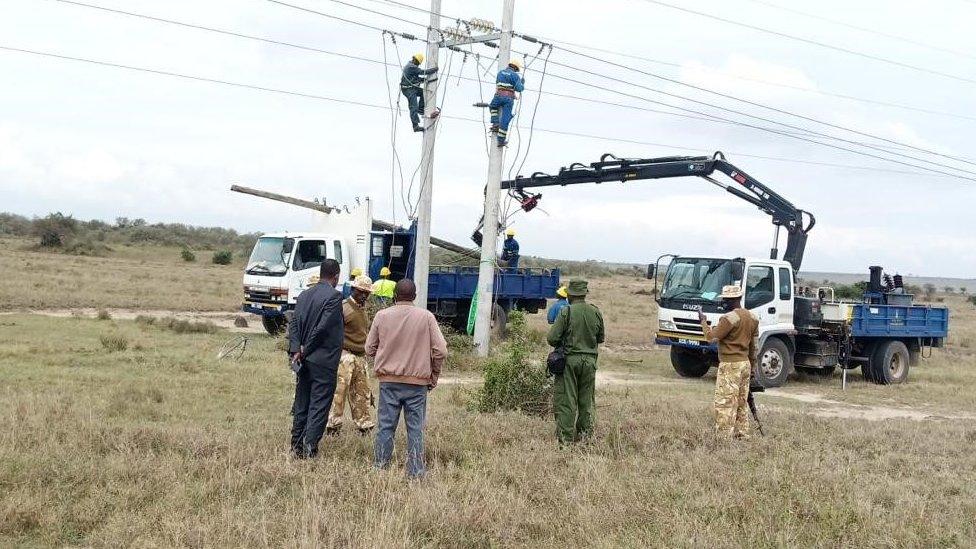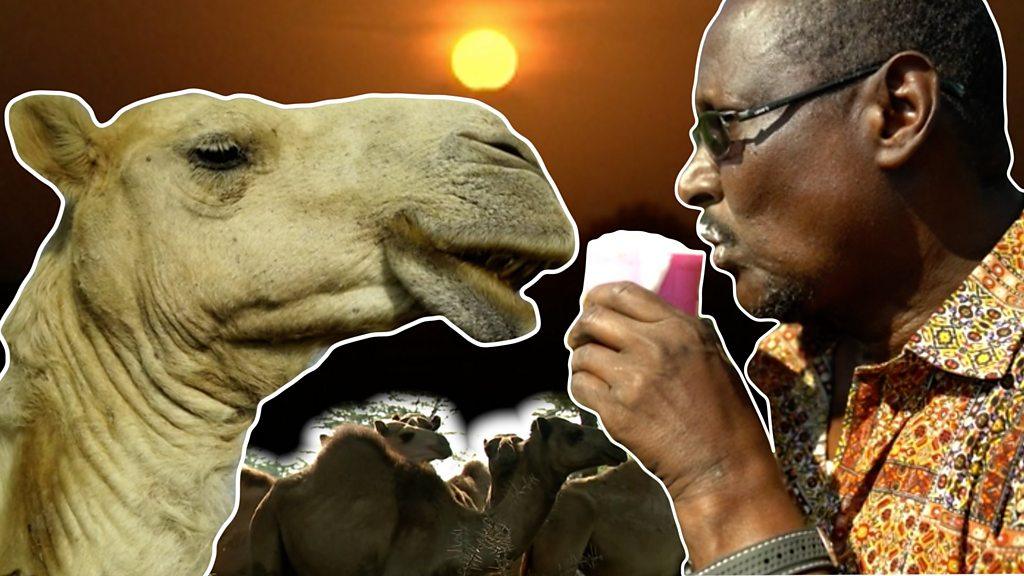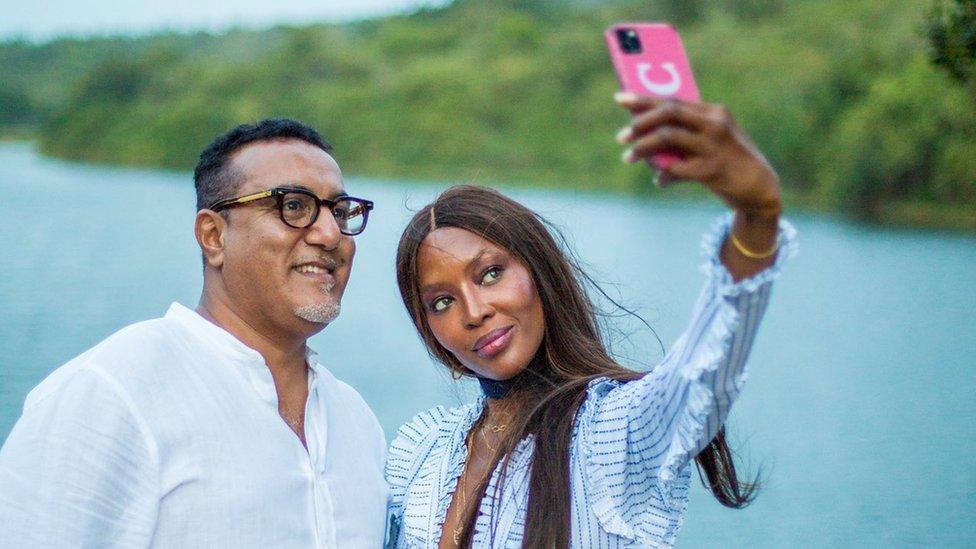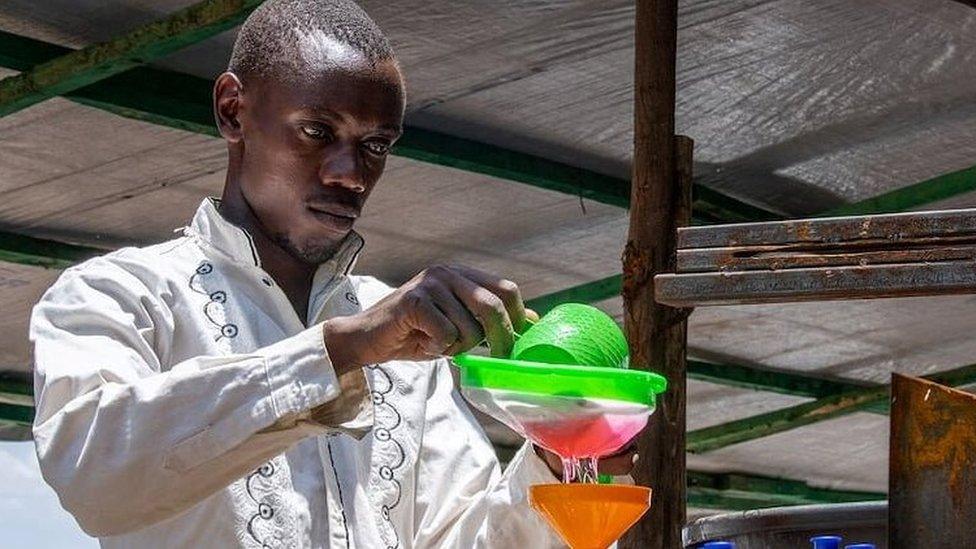Kenya: Endangered giraffes killed by low power lines
- Published

The Kenya Wildlife Service says the power lines are too low for giraffes to safely walk underneath
Three rare giraffes have died after being electrocuted by low-hanging power lines in Soysambu conservancy in Nakuru, Kenya.
The Rothschild's giraffe is one of the most endangered types of giraffe, with conservationists estimating there are fewer than 1,600 in the wild.
Kenya has about 600 Rothschild's.
Kenya Power has confirmed that it will replace electricity poles in the area so that they are tall enough for giraffes to safely pass under.
Warning: A tweet appears below that contains images some readers may find distressing.
The Kenya Wildlife Service (KWS) said it had sent representatives to investigate the area and found the height of the poles was insufficient.
The KWS was reacting to a tweet posted by conservationist Paula Kahumbu.
In another tweet, Ms Kahumbu added that these deaths were not the first, and that they could have been prevented if expert advice had been followed.
"These power lines have been killing giraffes, vultures and flamingos. Advice from experts was ignored. RIAs [Risk Impact Assessments] are notoriously poor on many development projects. Sad that it takes these kinds of deaths to wake some people up!" she tweeted.
She also tweeted at Kenya Power to ask them to "please address the problem with [the KWS] in totality not piecemeal".
In a statement, Kenya Power CEO Bernard Ngugi said that the company "takes any electricity-related accidents seriously".
Allow X content?
This article contains content provided by X. We ask for your permission before anything is loaded, as they may be using cookies and other technologies. You may want to read X’s cookie policy, external and privacy policy, external before accepting. To view this content choose ‘accept and continue’.

"We regret this incident because we recognise that wildlife forms an integral part of our natural and cultural psyche, and we appreciate the feedback shared by various stakeholders on this matter," he added.
In December the BBC's Catherine Byaruhanga visited the Nashulai community, who are trying to conserve wildlife in Kenya's Maasai Mara Reserve
Related topics
- Published2 February 2021

- Published12 January 2021

- Published9 January 2021
